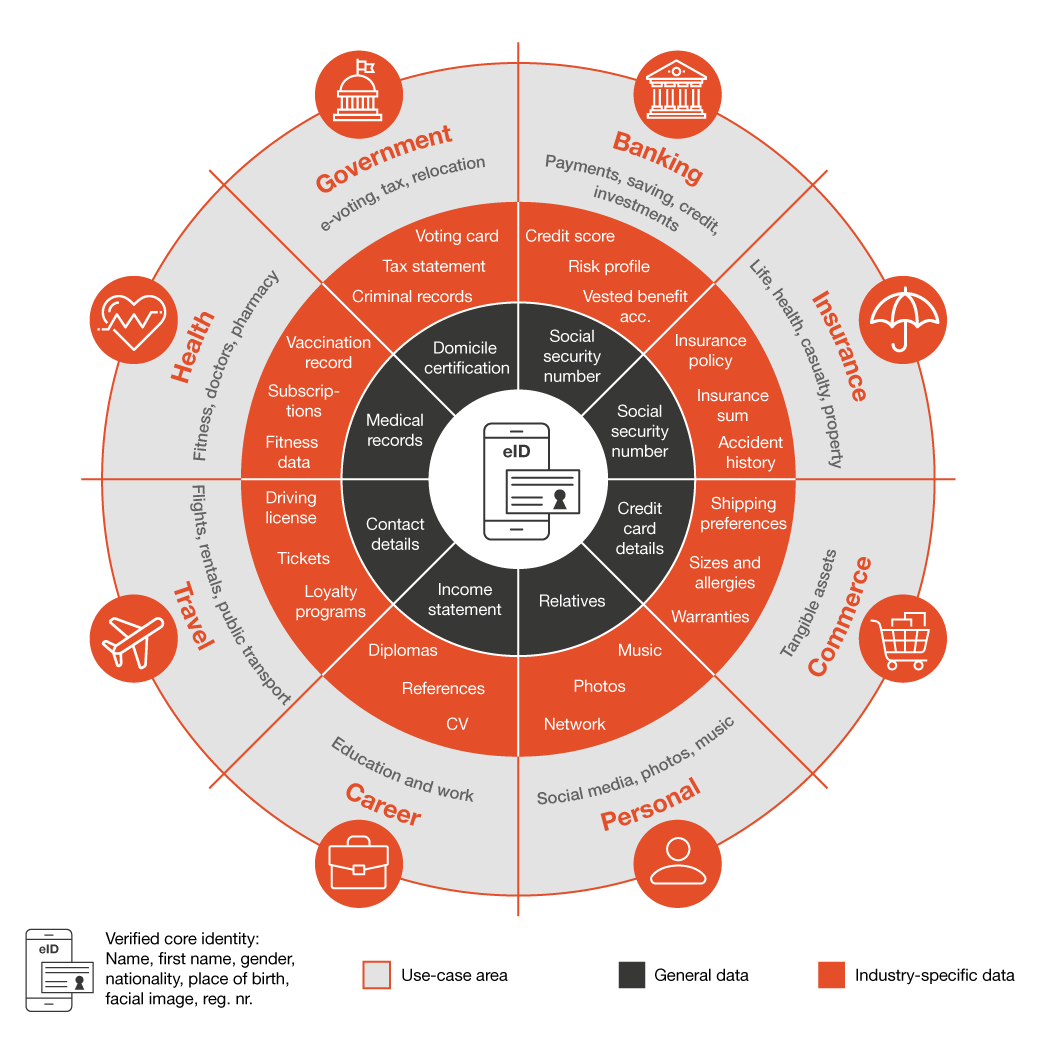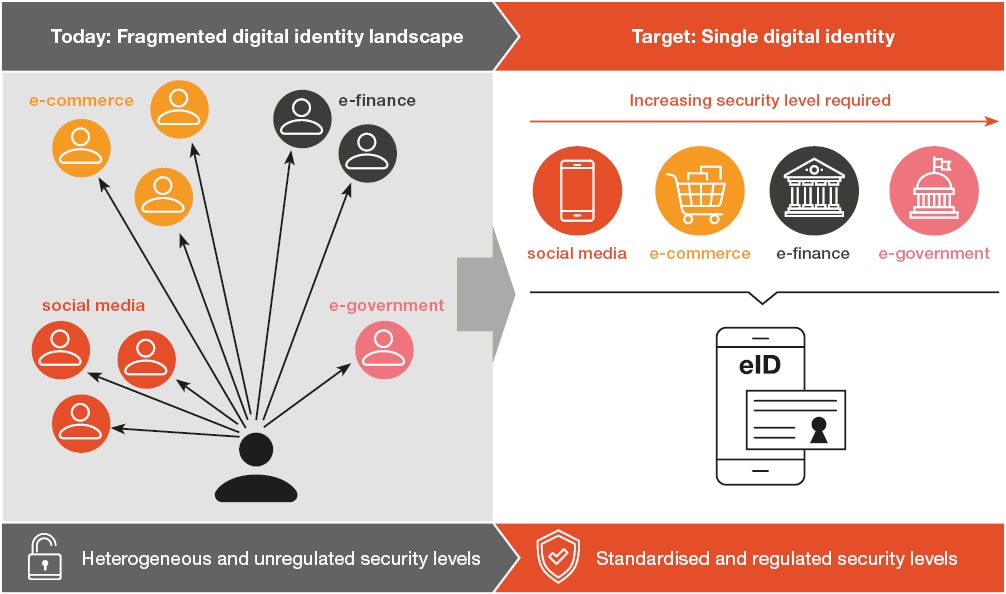Identity is a precondition for participating in society by facilitating access to health and welfare systems, education, and financial and government services. With the accelerating digital transformation, a rapidly growing number of transactions is conducted online, creating an ever-more-urgent need for a digital identity.
A catalyst for countless use-cases
Based on verified personal information, a digital identity can be defined as a set of digitally captured and stored attributes such as name, date of birth or gender coupled with credentials that are linked to a unique identifier to identify a person and thereby facilitate transactions in the digital world. In the future, the core digital identity attributes may be complemented with additional attributes and documents from all areas of life such as social security number, medical records or school diplomas, catalysing the digital transformation for countless use-cases ranging from opening a bank account and taking out an insurance policy to filing a tax return.

.
Evolving digital identity landscape
Before we were aware how extensively the internet would proliferate into our everyday lives, the internet was built without a native identity layer. In the absence of a standardised way to identify people or entities, every website started to create its own digital identity solution with its own local accounts and passwords. As a result, people collect in their digital interactions a multitude of digital identities ranging from different e-mail accounts and social media profiles to e-banking accounts.
By contrast, a single digital identity has the potential to significantly improve both user experience and convenience by making a wide range of digital services accessible in a seamless fashion and rendering repeated registration obsolete. In addition, users will be able to regain control over their digital identity by being able to manage which attributes they want to share with which counterparty. At the same time, “putting all your eggs in one basket” and entrusting a single digital identity ecosystem with managing your digital identity leads to an elevated cluster risk in case of an attack, technical failure or malicious behaviour. Despite these security concerns, the overall security situation is expected to improve for the average user thanks to lower complexity as well as standardised and clearly regulated security levels across the entire digital identity ecosystem.
Seizing the opportunity
With this in mind, a universally usable digital identity represents an opportunity for companies to reduce risks and realise considerable cost savings by increasing process efficiency and de-facto outsourcing customer identification. Businesses can increase their conversion rates by lowering the threshold to conclude a transaction and by launching new products and services with a superior user experience to help them gain a competitive edge.












